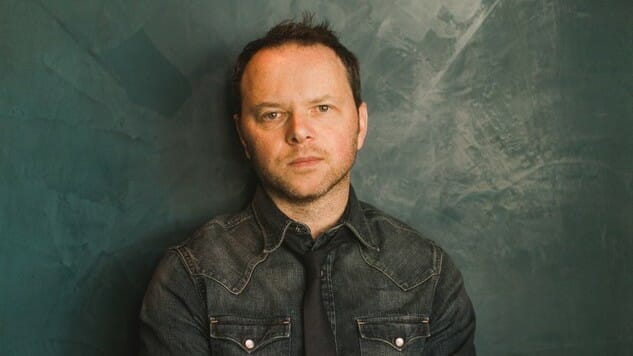Fargo Showrunner Noah Hawley Discusses His Favorite Thrillers and Hit Novel, Before the Fall
Author Photo by Leah Muse
In a time when the media is tapping into our desire to be shocked, what makes a narrative truly thrilling? To be shocked, we simply need a moment of utter surprise. To be thrilled, we require more: a set up, an emotional investment, a crescendo, a payoff. But according to Noah Hawley, author of the new hit novel Before The Fall and showrunner on FX’s Fargo, it must begin with something big.
“We live in a moment in time when we’re overwhelmed with stories in all forms,” Hawley says in an interview with Paste. “So in some ways, if you really want to connect with people, you have to tell them a story that has a certain amount of energy, that starts with a catalytic event.”
In Before The Fall, that event is a plane crash. The passengers include a hedge fund manager and his wife, the head of a Fox News-style cable station and his family, a painter and a small crew of experienced professionals. Only two people survive.
 No one can deliver an answer to why the plane went down shortly after takeoff, so an exhaustive investigation and interrogation begins. Jumping back and forth between characters to relive the final days before the crash, Hawley tackles the motivations that could explain the tragedy while exploring what it means to survive in the wake of such great loss.
No one can deliver an answer to why the plane went down shortly after takeoff, so an exhaustive investigation and interrogation begins. Jumping back and forth between characters to relive the final days before the crash, Hawley tackles the motivations that could explain the tragedy while exploring what it means to survive in the wake of such great loss.
“I like stories with a lot of moving pieces, because it creates the element of randomness on some level,” Hawley says. “You know they are going to collide with each other at some point, but how and which ones collide—there’s an element of chance to that, and I think that’s exciting.”
Like in Fargo, the mystery in Before the Fall doesn’t rest in the “how” or the “why”; it’s Hawley’s arrangement of the pieces that drives the tension. Throughout the novel, it seems plausible that each character could have been to blame for the crash. The parallel plots of the story, one running before the crash and the other after, feel equally urgent. That urgency, in turn, drives the sense of danger as the story pushes towards its resolution.
Hawley perceives that sense of danger as tapping into something deep in the human psyche, perhaps calling back to a time when fear kept us alive.
“It’s a human desire to be scared,” he says. “On some level, that’s how we survived—that sense of fear and danger. Our lives are much safer, so we gravitate to those stories that makes us feel those things and learn lessons, even if it’s just, ‘What are you doing? Don’t go in the basement!’”
When it comes to what Hawley looks for in thrillers, the answer is unsurprising: Human stories that challenge the traditional good-guy/bad-guy dichotomy. In his own work, Hawley says he wants the audience’s emotional investment in the characters to “complicate the narrative,” causing foregone conclusions about the way things should work out to become messier as we see multi-dimensional people interacting.
-

-

-

-

-

-

-

-

-

-

-

-

-

-

-

-

-

-

-

-

-

-

-

-

-

-

-

-

-

-

-

-

-

-

-

-

-

-

-

-








































